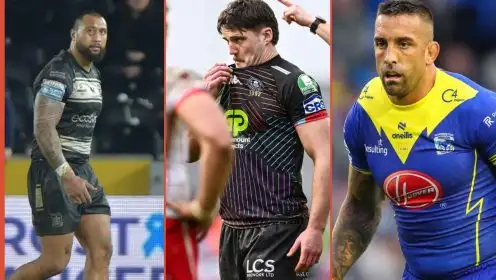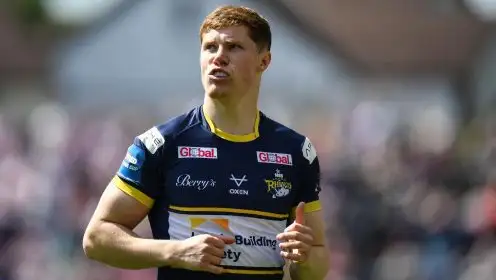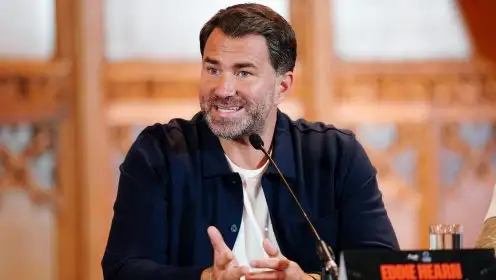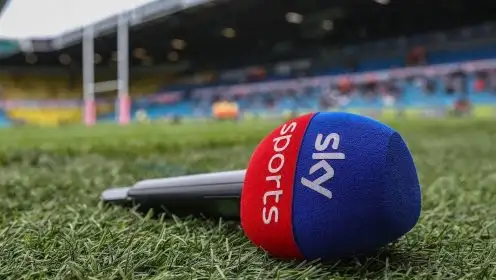Rugby league’s gamesmanship issue is spiralling out of control: but there is a solution to fix it
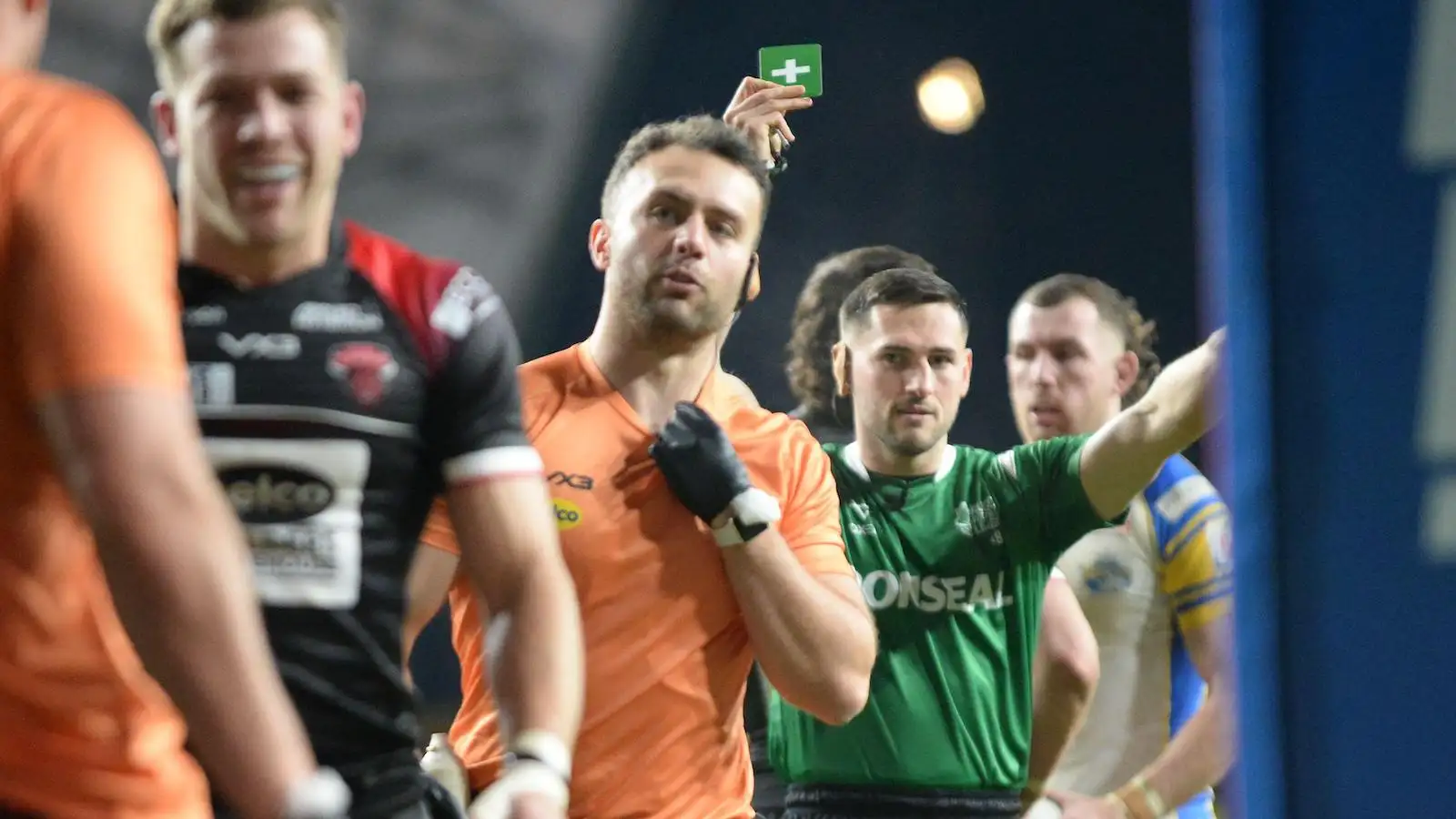
2WJP8N2 Aaron Moore issues a green medical card during the Betfred Super League Round 1 match Leeds Rhinos vs Salford Red Devils at Headingley Stadium, Leeds, United Kingdom, 16th February 2024 (Photo by Craig Cresswell/News Images)
When Super League coaches – who are often used to biting their tongue on the big issues – are all falling over themselves to have a say on a matter, you know it’s generally quite serious.
It doesn’t matter how you dress it up and what you call it. Gamesmanship, players trying to manipulate an opposition or plain old cheating: Super League has a real problem that it needs to clean up – and fast.
With the play-offs just two weeks away and all eyes on the competition – or at least more than at any other point in the season – this recent spate of players seemingly staying down to draw further punishment for their opponents is a horrendous look.
It detracts from everything rugby league is about, and unfortunately, the onus is going to have to fall on the game’s administrators to do something about it.
Naturally, the best outcome would be for players and coaches to realise this is a horrendous look for a sport that prides itself on its physicality, it’s free-flowing nature and, perhaps most importantly, its honesty. The game does need its coaches to be actively discouraging it but that is clearly not happening, right now.
So we need an alternative.
There have been suggestions – including from myself – on social media that every player who stays down is subject to a mandatory Head Injury Assessment. But on reflection, that wouldn’t be right. For starters, it’s excessive because not every high tackle requires further assessment.
It also is unfair on players are genuinely in need of a HIA. So that option has to be parked: it simply isn’t viable, and wouldn’t work in the current climate.
What about enforcing a rule whereby if the on-field match official doesn’t deem a tackle to have made dangerous contact with the head, the video referee can’t intervene retrospectively to recommend a card be awarded?
It would potentially discourage players from staying down and cut down on the gamesmanship to an extent, because they know there’d be no point. But then, if you made that mandatory, you would miss out on penalising genuine head contact that match officials miss due to human error.
So let’s scratch that.
All of this essentially depends on what the Rugby Football League want to do about it. Do they care enough about this issue to intervene? Their stock response is usually to leave it to the clubs and offer mere advice on cutting down on gamesmanship, but they can actually make a difference in this instance.
And it all revolves around the lesser-spotted green card.
At present, the green card is only used when a doctor or physio enters the field of play while the game is live, and requests for it to be stopped due to a player requiring treatment. That player then has two choices: leave the field for a HIA or receive the green card, which reduces their side to 12 men for two minutes.
But it can only be used for attacking players, and can’t be used for defensive players – which is designed to stop the game being slowed down at crucial moments.
However, surely there has to be a way to incorporate the green card in a situation like this? If the game is stopped due to a player receiving treatment after a collision, then they will be withdrawn for a HIA if they are in legitimate need of one anyway.
But if they are treated, and then subsequently remain on the field.. that’s where the problems lie. That’s where the green card, the two-minute time-out, would at least go some way towards starting to fix a problem that’s threatening to spiral out of control.
The worry is that there is no perfect solution in this scenario; that you can’t fully eradicate gamesmanship without properly protecting the players. But there has to be at least some attempt to resolve it.
Because as Jon Wilkin pointed out on Sky Sports last weekend, this is not good to watch. And at a time when rugby league is trying to get more new viewers than ever before, the game has to sell its strengths.
This has fast become one of its glaring weaknesses.
READ NEXT: The Super League players with fresh injury worries including St Helens and Hull KR stars
